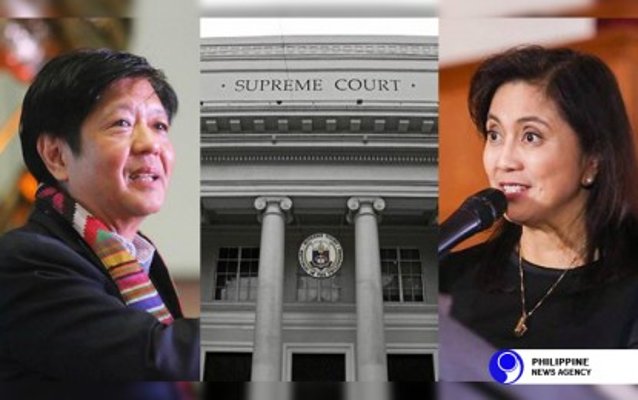Neither survey results nor mammoth crowds in campaign rallies can make a candidate win. But somehow, these indicate a candidate’s popularity or unpopularity. The actual votes we will cast next Monday are what will make candidates win.
The surveys — with a measly 1,200 to 2,500 respondents out of 65 million registered voters — and huge crowds in rallies only serve to create perceptions on who are leading and who are lagging behind, who can attract more people or who can mobilize attendees for hire.
Voting is every responsible citizen’s duty; it must be taken seriously. It’s an exercise of a constitutional obligation that should not be based only on who’s leading the surveys or who’s able to muster the bigger crowd.
By this time, we should have checked the qualifications and platforms of the candidates, particularly of those vying for higher office. We should have reviewed their performance in previous positions, be they in public or private office, and determine if they are capable of delivering what they promise to do when elected.
This forthcoming election is like no other not only because it is conducted during a pandemic but also because of the magnitude of disinformation circulating on social media. That’s why every voter should be more discerning than ever if we care for the country and the future.
We should choose candidates who can accomplish the programs they present to improve the life of the majority, not just to redeem a name tarnished by corruption and human rights violations.
In this election, we should realize the power in our hands, exercised through the ballot, to reject candidates who put personal, family, business and partisan interests over those of the people they have promised to serve. We can use this power to hold corrupt officials to account and, at the same time, show appreciation for those who set aside their personal convenience to serve the public.
The economy is in bad shape and still threatened by a global health crisis. We need leaders who can resuscitate it without resorting to more borrowings. The government is already deep in debt and is saddled with a massive budget deficit. More borrowings will mean more taxes to be collected from the already overburdened workers and consumers.
The government needs massive cleaning up, from top to bottom. This is where the full disclosure program initiated by Vice President Maria Leonor “Leni” Robredo can help to chart a comprehensive program to instill discipline in public office, both in appointive and elective positions.
Robredo’s push for full disclosure in government, including waiver of confidentiality in bank accounts and public access to the annual Statement of Assets, Liabilities and Net Worth, has seemingly deterred corrupt local government executives from endorsing the vice president’s presidential bid.
Notice that most of the provincial governors, congressmen, and city and municipal mayors have chosen to align themselves with the moneyed candidates while Robredo’s campaign is fueled largely by volunteers who despise corruption.
The local think tank Action for Economic Reforms (AER) said in a statement on Friday that next week’s elections will be a turning point for the country, requiring the next president to have concrete strategies in place to contain the risks that COVID-19 continues to pose and to prop up economic recovery.
In this light, AER said the results of pre-election surveys indicate that the country’s economic future is in terrible jeopardy. “Ferdinand Marcos Jr. has led electoral surveys, and this spells trouble for everyone,” the AER said.
It cited a Bloomberg survey of 28 investors and analysts in which Marcos Jr. had the second-lowest score among the five top candidates for president. Marcos scored 46 while Robredo had the highest score of 105.
In view of studies such as AER’s, all the more we should take a serious look at the programs of each of the candidates and determine who is paying mere lip service to good governance and who are genuinely committed to serve the public.
The future is in our hands; let’s not waste the constitutionally guaranteed power by voting for the wrong people. High survey ratings don’t translate into a candidate’s capacity and capability to serve the public good, neither can huge crowds in rallies.
The views in this column are those of the author and do not necessarily reflect the views of VERA Files.
This column also appeared in The Manila Times.
